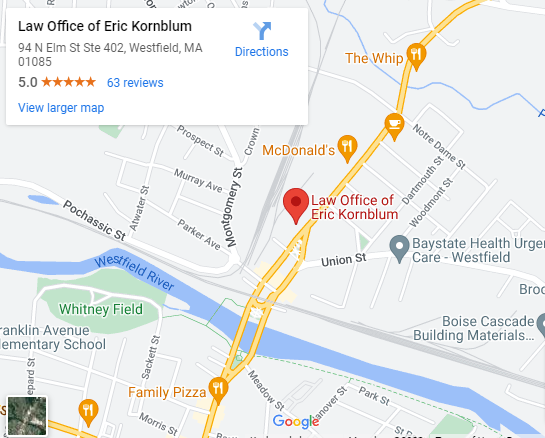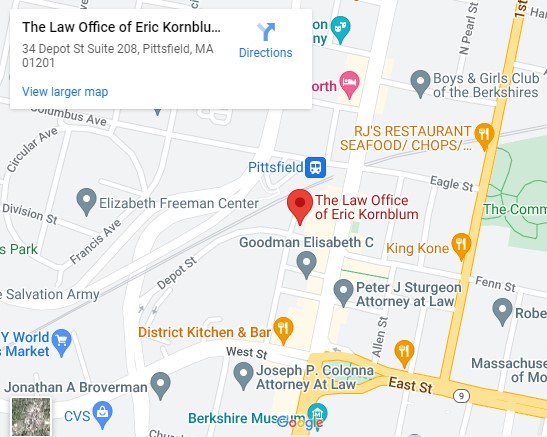Get The Best Guidance in Choosing The Type of Bankruptcy You Need!
When debts overwhelm you, having several questions in mind is inevitable, such as “What are the types of bankruptcy in Springfield, MA?” For average individuals, filing for bankruptcy is daunting, which is normal. Do not lose hope if you are having difficulties understanding the concept of bankruptcy. You are highly encouraged to speak with our experienced bankruptcy attorney.
Short Summary:
Here’s a quick overview of what you need to know about bankruptcy types in MA:
- Bankruptcy is a legal process allowing individuals and businesses to discharge or reorganize their debts.
- Chapter 7, Chapter 11, Chapter 12, and Chapter 13 are the four main types of bankruptcy.
- Chapter 7 involves liquidating assets to pay off creditors and discharging remaining debts.
- Chapter 11 focuses on reorganizing financial affairs to continue operations and repay debts over time.
- Chapter 12 is designed for family farmers and fishermen through a court-approved repayment plan.
- Chapter 13 allows individuals to repay debts for up to five years through a court-approved plan.
- Each bankruptcy chapter has specific eligibility criteria and procedures.
The Law Office of Eric Kornblum will help you get your financial burdens off your back. We exude all our efforts to ensure that your rights are protected, and your goal of financial freedom is rightfully achieved. If you schedule a conversation with us today, we will work together to achieve that goal!
What is Bankruptcy?
Bankruptcy is a legal process that allows individuals and businesses to have their debts discharged or reorganized. It is a last resort for many people, but it can be a helpful way to get a fresh start financially. In Springfield, Massachusetts, bankruptcy cases are filed in the United States Bankruptcy Court for the District of Massachusetts. There are also four main types of bankruptcy: Chapter 7, Chapter 11, Chapter 12, and Chapter 13.
Retailers or businesses facing financial challenges can initiate bankruptcy proceedings. Typically, the most commonly filed types of bankruptcy fall into Chapters 7, 11, and 13, categorized based on the relevant section of the Federal Bankruptcy Code chosen by the debtor.
In Chapter 7 bankruptcy, the primary focus is selling off assets to settle debts, ultimately leading to the discharge or elimination of the outstanding obligations. Chapter 11 bankruptcy, on the other hand, involves a reorganization strategy where a company or individual aims to continue operations by restructuring their financial affairs. Part of this reorganization plan often includes making scheduled payments to creditors over a specified period. Meanwhile, Chapter 13 bankruptcy is for individual debtors with regular income who wish to devise a repayment plan to address their debts gradually over several years.
Chapter 7 Bankruptcy
Chapter 7 bankruptcy is a liquidation bankruptcy wherein the debtor’s assets are sold to pay off their creditors. It is typically the fastest and simplest type of bankruptcy, but it is not available to everyone. Debtors must pass a means test to qualify for Chapter 7 bankruptcy.
To qualify for Chapter 7 bankruptcy in Massachusetts, you must:
- Be insolvent, which means that your debts are greater than your assets.
- Have a monthly income below the median income for your household size in Massachusetts.
If you qualify for Chapter 7 bankruptcy, the following steps will occur:
- File a petition with the United States Bankruptcy Court for the District of Massachusetts.
- A bankruptcy trustee will be assigned to your case.
- The trustee will gather and sell your nonexempt assets.
- The proceeds from the sale of your assets will be used to pay off your creditors, according to a distribution scheme required by the Bankruptcy Code.
- The remaining debts will be discharged once your debts have been paid to the extent possible.
Chapter 7 bankruptcy can discharge various debts, including:
- Credit card debt
- Medical debt
- Personal loans
- Student loan debt (in some cases)
- Tax debt (in some cases)
However, some debts cannot be discharged in Chapter 7 bankruptcy, such as child support, alimony, and certain types of student loan debt.
Chapter 11 Bankruptcy
Chapter 11 bankruptcy is a reorganization bankruptcy, which means that the debtor works with their creditors to create a plan to repay their debts over time. Businesses often file for this bankruptcy type, but individuals with enormous debts can also do so.
To qualify for Chapter 11 bankruptcy in Massachusetts, you must:
- Be insolvent, which means that your debts are greater than your assets.
- Have a viable plan to reorganize your debts and repay your creditors over time.
If you qualify for Chapter 11 bankruptcy, the following steps will occur:
- File a petition with the United States Bankruptcy Court for the District of Massachusetts.
- You will be required to submit a detailed reorganization plan to the court.
- The court will hold a hearing to review your plan of reorganization.
- If the court approves your reorganization plan, you must pay your creditors according to the plan terms.
- Your debts will be discharged once you have completed all of your payments under the plan.
Chapter 11 bankruptcy can be a complex process, and it is crucial to have our skilled bankruptcy attorney to help you through the process.
Chapter 12 Bankruptcy
Chapter 12 bankruptcy is a reorganization bankruptcy designed especially for family farmers and fishermen. It allows eligible debtors to repay their debts for up to three years through a court-approved repayment plan.
To qualify for Chapter 12 bankruptcy in Massachusetts, you must:
- Be a family farmer or fisherman.
- Have at least 50% of your debt related to your farming or fishing business.
- Have received at least 50% of your gross income from your farming or fishing business in the preceding tax year (or two or three preceding tax years in some cases).
- Have a viable plan to reorganize your debts and repay your creditors for up to three years.
If you qualify for Chapter 12 bankruptcy, the following steps will occur:
- File a petition with the United States Bankruptcy Court for the District of Massachusetts.
- You will be required to submit a detailed reorganization plan to the court.
- The court will hold a hearing to review your plan of reorganization.
- You should pay your creditors according to the plan terms once the court approves your reorganization plan.
- Your debts will be discharged once you have completed all of your payments under the plan.
Chapter 13 Bankruptcy
Chapter 13 bankruptcy is a reorganization bankruptcy allowing individuals to repay their debts for up to five years through a court-approved repayment plan.
To qualify for Chapter 13 bankruptcy in Massachusetts, you must:
- Be an individual with a regular income.
- Have unsecured debts of less than $419,275 and secured debts of less than $1,257,850 (these limits are subject to change every three years).
- Have a viable plan to repay your debts for up to five years.
If you qualify for Chapter 13 bankruptcy, the following steps will occur:
- File a petition with the United States Bankruptcy Court for the District of Massachusetts.
- You will be required to submit a detailed repayment plan to the court.
- The court will hold a hearing to review your repayment plan.
- If the court approves your repayment plan, you must pay your creditors according to the plan terms.
- Your debts will be discharged once you have completed all of your payments under the plan.
Call our Bankruptcy Attorney from Springfield, MA, Now!
Knowing the types of bankruptcy in Springfield, Massachusetts, is not enough. As someone who needs a fresh start, you must fully understand each chapter and determine the best one for you, depending on your situation. Figuring this out is not an easy task for an average individual. We encourage you to consult our experienced bankruptcy attorney if you require assistance.
The Law Office of Eric Kornblum will assist you in understanding what are the types of bankruptcy in Springfield, MA, and giving efficient legal help for your fresh start. We always ensure that your rights are protected, and that you get the highest quality of legal service that you deserve. With over 20 years of experience, we are confident your case will be in good hands.
We also offer Massachusetts legal services on employing bankruptcy exemptions, tailored defense against foreclosure, and stopping and preventing wage garnishment.

 MA bankruptcy lawyer Eric Kornblum graduated from State University of New York, Binghamton in 1989 and received his law degree in 1992 at Western New England College, School of Law. Since opening his own practice, Eric has been dedicated to helping his clients resolve their financial problems both in and out of court.
MA bankruptcy lawyer Eric Kornblum graduated from State University of New York, Binghamton in 1989 and received his law degree in 1992 at Western New England College, School of Law. Since opening his own practice, Eric has been dedicated to helping his clients resolve their financial problems both in and out of court. 
